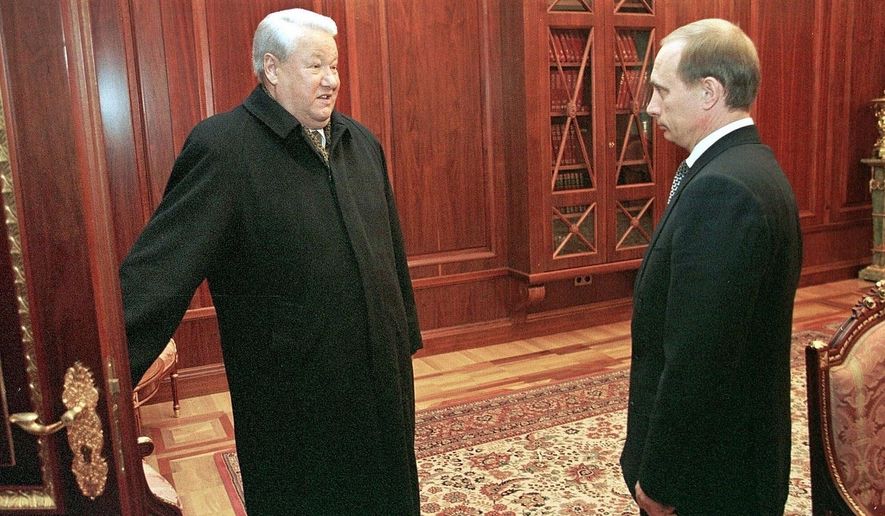In late 1999, a series of decisions by Russian President Boris Yeltsin helped pave the way for the return of Russian authoritarianism under a powerful leader – although nothing was inevitable about it.
Despite having little personal experience with a former KGB officer named Vladimir Putin, Yeltsin appointed him prime minister in August on the advice of aide Valentin Yumashev. In late December, an ailing Yeltsin resigned months earlier than anticipated, making Mr. Putin the acting president. Three months later, in March 2000, Mr. Putin won the presidential election.
In this episode of History As It Happens, Julie Newton, an expert on Russian history and politics at Oxford, discusses Mr. Putin’s unexpected rise and his initial steps toward resuscitating state power to counteract the effects of the country’s disastrous political and economic reforms of the 1990s.
“Putin has a predilection for authoritarian responses to problems … and the way he was going to solve the extraordinary problems was through typically authoritarian reflexes. But those reflexes were also combined with a desire to democratize, to integrate into Western economies, and to get stronger over time. He doesn’t start off as a full-fledged autocrat,” Ms. Newton said.
She argues Mr. Putin took a more autocratic, or anti-West, stance after his attempts at diplomacy failed to improve Russia’s international standing during the 2000s.
The U.S. blocked Russia’s entry into the World Trade Organization. Mr. Putin failed to convince President George W. Bush not to invade Iraq. And arguably most importantly, the Russian leader’s warnings about offering NATO membership to Ukraine and Georgia went unheeded. At the Bucharest conference in 2008, Mr. Bush vaguely promised future membership to both former Soviet republics.
“He doesn’t get what he wants out of George Bush,” Ms. Newton said. “Of course, he wants it on his terms.”
To listen to the full interview with Ms. Newton about the nature of the Russian state under Mr. Putin and the road to war in Eastern Europe, download this episode of History As It Happens.




